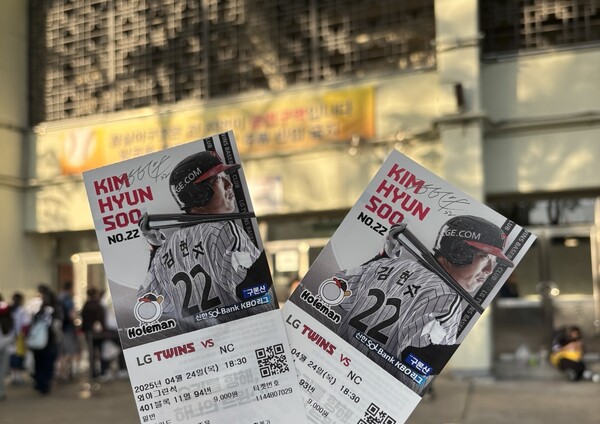
Securing tickets for major sports events or concerts has turned into a race against time, with sales ending in mere seconds. Tickets sell out within seconds of sale opening, and many are later resold at prices far above the original sale price. While some individuals transfer tickets due to unavoidable personal circumstances, a significant portion of transactions are carried out systematically by illegal ticket scalpers. In particular, illegal ticket trading has become more active online than traditional in-person exchanges near stadiums. However, the legality of resale varies depending on the type of ticket, sales method, and platform structure. This article examines the scope and limitations of current legal regulations surrounding online ticket reselling.
Legal standards of ticket reselling
In general, “scalping” refers to selling a ticket at a higher price than its face value. Under Korean law, scalping is considered illegal only when two conditions are met: the ticket is sold inside or around the stadium, and it is resold at a price above the original price. Because the law assumes offline, in-person transactions, there is currently no regulation that directly penalizes online resale at inflated prices. As a result, resale on official secondary platforms is not regarded as illegal, even when sold above the original price. To supplement this gap, the government has recently announced criminal penalties for bulk purchasing with keyboard and mouse macros. A macro is an automated program that allows users to buy a large number of tickets in a very short time, giving them an unfair advantage over ordinary buyers. However, such actions can only be punished under the crime of business obstruction rather than as illegal scalping itself.
According to the Korea Music Label Industry Association, three out of ten Koreans in their 20s had purchased scalped tickets as of 2023. This is due to a severe imbalance between ticket supply and demand, as well as the increased accessibility to trading through online platforms. As a result, the likelihood of financial damage caused by ticket fraud has grown rapidly. An announcement from the Korea Communications Commission revealed that “ticket and gift card fraud” ranked first among all online scam cases in the first half of this year, accounting for 37.93% of total incidents. In addition, data from The Cheat, a scam-alert sharing platform, show that reported ticket-related fraud cases surged from 5,167 in 2016 to 59,837 in 2024, largely due to the shift from offline to online transactions.
Evolving scalping practices and the outdated laws in the digital era
Ticket scalping has evolved with digitalization. While in the past most illegal sales occurred outside stadium entrances, resale platforms and social media platforms now dominate the market. Platforms connect sellers who cannot use their tickets with buyers who need them, operating under a customer-to-customer model and taking commissions from each transaction.
The key issue is that the current legal structure remains largely rooted in offline trading. The Punishment of Minor Offenses Act, enacted in 1973, only penalizes scalping conducted near stadiums, with fines capped at 200,000 won. Such limited penalties illustrate how outdated, the framework is and how it fails to address the realities of today’s digital marketplace. In March 2024, the Performing Arts Act was revised to ban bulk purchases via macros and impose penalties of up to one year in prison or fines of up to 10 million won.
Building a fairer market through organizers and public awareness
While stronger platform regulation and legal measures are essential, preventing ticket scalping also requires active efforts from event organizers and a change in public awareness. Both concert promoters and sports associations have introduced diverse strategies to ensure fair ticket distribution.
In the concert industry, several organizers have adopted strict monitoring and reporting systems. For instance, the management of singer IU operates a “secret inspector” policy that rewards fans who report illegal ticket resales. The company announced that any tickets obtained through unofficial channels, macro programs, or premium resale websites would be deemed invalid and immediately canceled. Fans who provide evidence of scalping receive rewards such as concert tickets or official merchandise. This initiative not only discourages fraudulent sales but also encourages voluntary participation in creating a transparent market.
Baseball team Kia Tigers has also introduced preventive measures to minimize harm to fans. The club continuously alerts fans through social media and enforces strong penalties, such as a one-year membership suspension and season-ticket revocation for those involved in scalping. Identity verification is required for all season-ticket holders, while high-demand seating options can only be purchased through the mobile app to block macros. Additionally, the smart ticket gifting function is restricted until two hours before a game to prevent pre-game resale. These measures may not completely eliminate illegal trading, but they help foster transparency and fairness in the ticket market.
Current ticket regulations fall behind the rapidly changing online marketplace. The government must therefore strengthen legal standards and enforcement mechanisms to firmly address illegal ticket trading. Policy efforts alone are not enough; scalping will persist as long as there is demand for overpriced tickets. Consumers must take responsibility by refusing to purchase scalped tickets and supporting a fair pricing system. Choosing not to buy from resellers is the most direct way to protect both individual fans and the integrity of the ticketing system. Ultimately, eliminating scalping requires both stronger legal actions and a shift in public awareness. Only when consumers, organizers, and policymakers act together can a sustainable and transparent ticketing culture truly be achieved.

